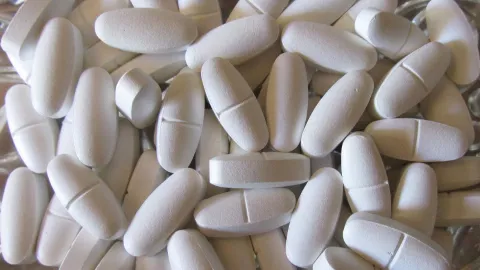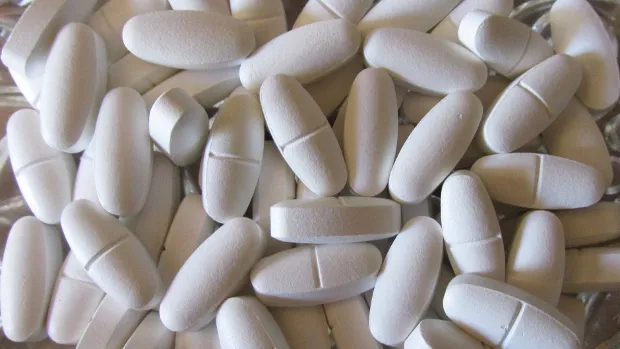
New trial shows no effect of high dose vitamin D in relapsing remitting MS
A recent clinical trial, called the VIDAMS trial, tested whether high dose vitamin D could help treat people with relapsing remitting MS. In a paper published last week, results showed no effect of the supplement on relapses or new lesions on an MRI scan.
Research shows vitamin D plays a role in your risk of developing MS. But we haven’t had good evidence to say whether vitamin D supplements could help treat MS.
Previous studies have shown mixed results. Now a new clinical trial from the United States has shown high dose vitamin D may not be an effective treatment for relapsing MS. The study was funded by the National MS Society in the US.
About vitamin D
Our bodies need vitamin D to help absorb different nutrients. It’s often referred to as the sunshine vitamin. That’s because it’s produced in our skin in response to sunlight. We can also get small amounts from certain types of food.
Because of the UK's climate, the NHS recommends everyone living here takes a daily vitamin D supplement. And some neurologists advise people with MS to take higher doses.
What did the researchers do?
172 people with relapsing remitting MS either received a low or high daily dose of vitamin D. The low dose was 600 international units (IU), slightly above what the NHS recommends. The high dose was 5000 IU, which is above what the NHS says could be harmful.
They took this alongside a disease modifying therapy (DMT) called glatiramer acetate (Copaxone). Each participant took the supplement for 96 weeks.
What did they find?
The results show no difference in the number of participants experiencing a relapse when comparing the low and high dose of vitamin D. The researchers also didn’t find a difference in the number of lesions or brain shrinkage on MRI scans.
These findings support several smaller, shorter studies also showing no effect of vitamin D supplements on the number of relapses. This study enhances previous evidence because it’s larger and it systematically compared two different doses of vitamin D. It’s a phase 3 trial, which is the gold standard for research.
Another phase 3 trial, presented at the ECTRIMS conference last year, gave similar results. But we’re still waiting for these to be published.
What does this mean for people with MS?
Many people with MS in the UK do take a vitamin D supplement. We know this from research we’ve funded previously. And understanding the potential benefits of vitamin D supplements as a DMT was one of our top 10 research priorities from 2012.
These new findings suggest taking a high dose of vitamin D, on top of a DMT, may not have an impact on your MS.
But the NHS does recommend everyone in the UK takes a low dose vitamin D supplement.
What do we still need to know?
This study doesn’t answer all our questions about vitamin D and MS.
The researchers say it’s possible a different dose might be needed. Or that only some people with MS benefit from vitamin D supplements. To answer these questions, they’re planning to combine data from this and two other vitamin D studies.
If you’re worried about your vitamin D levels we recommend you speak to your health care professional.
We also need to know more about the role of vitamin D in causing MS. And we’re funding research to explore this.
Dr Emma Gray, our Assistant Director of Research, says "Low levels of vitamin D appear to increase the risk of someone developing MS. But for years the question of whether a high dose vitamin D supplement could help treat MS has gone unanswered. Now, results of a new clinical trial suggest high dose vitamin D may not be an effective treatment for relapsing MS.
“But we know that many people with MS in the UK who don't take a supplement are deficient in vitamin D. We know this from research we’ve funded. The NHS also recommends everyone in the UK takes a daily supplement for their bone health. We now need more research into how vitamin D, and other risk factors like Epstein-Barr virus, interact to cause MS. And, crucially, how we can prevent it."




